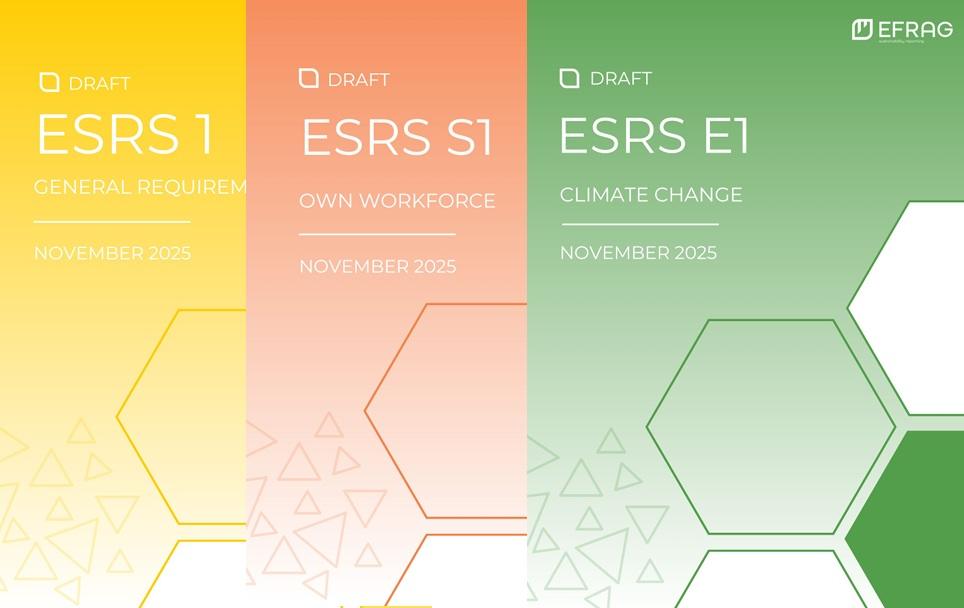Guest Post: Omnibus Gives Everyone Time – Let’s Use it Well
By: Jan Niewold, EY Climate Change and Sustainability Services
The European Commission’s proposals for simplification across its sustainability reporting regulations have triggered a wave of attention, and rightly so. When regulatory timelines shift, and the requirements change, companies may need to take stock and adjust.
Regulations as important as those addressed in the Omnibus package are bound to lead to a lot of debate – in public and within companies – and many have raised questions about why the changes are being made and whether the entire project is at risk. Amid all this, we must not lose sight of the bigger picture.
The transition to a sustainable economy is underway. The Omnibus proposals, if implemented, will postpone the deadline by which companies need to report on their activity, simplify reporting requirements, and exempt many smaller ones from the responsibility to report at all. But the direction of travel remains the same.
When we look back a decade from now, nobody will worry whether reporting started in 2025 or 2027. Only two things will matter then: whether reporting has made a difference and what advantages were gained by those who made an early and decisive commitment to sustainability.
Through that lens, what interests me most today is how companies use the space and time that Omnibus gives them to think through their approach. Because, while they can’t control the timing of the regulations, they can control how they respond to them.
A time to be strategic, not reactive
Some corporate leaders and stakeholders have interpreted the delay resulting from the Omnibus proposals as a withdrawal from the underlying intentions of the Corporate Sustainability Reporting Directive (CSRD), and the regulations that support it. In reality, it offers something many businesses will welcome: a little space to breathe.
Many of the companies I work with are continuing their work on sustainability at pace. They’ve already built internal frameworks, secured executive sponsorship, and started to embed sustainability data into performance conversations. The delay won’t diminish their ambition. If anything, it gives them room to go deeper.
For others – particularly those not yet in scope or recently taken out of it – the delay is an opportunity to move with greater intent. They can begin, or continue, the work of transforming their organizations to make them more sustainable, without the immediate pressure of compliance. My hope is that this space will encourage them to think and act strategically, not reactively.
Strong reporting comes from stronger business thinking
Great reporting is about clarity as much as compliance. Sustainability reporting can and should be a source of insight and alignment within a company and across its ecosystem. The value lies not just in the final disclosures, which are outward facing, but in the infrastructure that enables the company to make these disclosures.
The process of collecting data, establishing governance, and applying assurance, builds new capabilities, and these capabilities matter. They can sharpen risk management, deepen supplier engagement, and open up access to capital. This can help companies make more strategic decisions, strengthen accountability, and make it easier to track progress over time. In short, these capabilities help leaders to face the future with confidence.
The delayed timeline brought about by the Omnibus proposals is an opportunity for companies to improve this infrastructure. For example, they can refine their controls, strengthen traceability and build trust in their data.
Stakeholders now have their part to play
As crucial as it is for companies to make good use of the extra time they’ve been given, we also should ask what investors and other stakeholders are doing with the information that’s already being disclosed.
The promise of the EU’s framework is that high-quality sustainability reporting will enable better decisions from all parties in the business ecosystem – investors, business partners, regulators, auditors, employees, clients, nongovernmental organizations (NGOs), insurers, rating agencies and civil society. From an individual’s standpoint, it’s not just a question of ‘Should I invest in this company?’, but also ‘Should I work for it?’, ‘Should I buy its products?’, or ‘Do I want it opening a facility in my town?’ – and so on.
As more companies report more information, what matters is how intelligently and constructively it’s used. That means asking better questions, identifying where commitments are backed by action, and reinforcing high-quality reporting through the strategic deployment of capital and influence. The onus is on all of us – as investors, consumers, citizens – to show how we’ll use the information that companies give us.
A chance to prepare for what matters
So yes, the delay has created uncertainty. But let’s not overlook the opportunity. For some, it’s a chance to catch up. For others it’s a chance to strengthen and surge ahead – not just to report better, but to transform faster and in ways that give them a competitive edge. This is a moment to refine strategy, invest in capability and clarify where sustainability sits at the heart of long-term performance.
We should remember, better sustainability reporting is neither the goal nor the prize. It’s a way of understanding where we are, and what should be done, so we can get to where we want to be – not just as corporate leaders, but as people who want a prosperous and fair future. We’ve been given more time to do that well. Let’s make good use of it.
Disclaimer:
The views reflected in this article are the views of the author and do not necessarily reflect the views of the global EY organization or its member firms.





